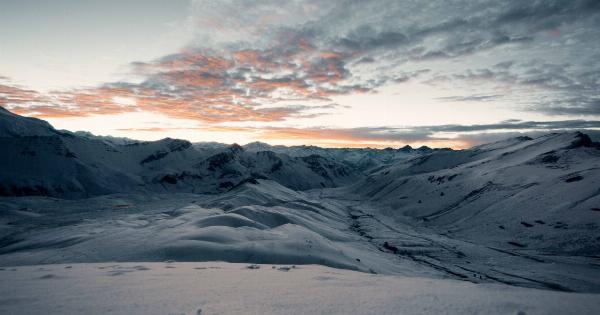From the chilling breeze on a winter’s day to the refreshing taste of an ice-cold drink, cold has always been a puzzle of nature. The absence of heat, the sensation of coolness – there is something inherently fascinating about this phenomenon.
But what exactly is cold? How does it affect us? In this article, we will delve into the mysteries of cold and attempt to unravel its secrets.
The Absence of Heat
At its core, cold is simply the absence of heat. Heat is a form of energy that drives the motion of atoms and molecules, and as this energy decreases, the temperature drops, resulting in the sensation we perceive as cold.
On the Celsius scale, zero degrees represents the temperature at which water freezes, and further decrease in temperature leads to even colder conditions.
The Role of Thermodynamics
Thermodynamics, a branch of physics, provides us with insights into the behavior of cold. It comprises the study of heat transfer, energy conversion, and the relationship between temperature and other forms of energy.
Understanding the principles of thermodynamics helps us unlock the secrets of cold and its impact on our surroundings.
How Cold Affects Matter
As temperatures drop, matter undergoes various transformations. Solids contract and become denser, liquids freeze and take on a solid state, and gases condense into liquids.
These changes are driven by the reduction in molecular motion, as energy levels decrease with decreasing temperatures.
Winter Wonders
Winters provide a multitude of fascinating phenomena associated with cold. Snowflakes, each unique in its intricate crystalline structure, captivate our senses.
The formation of ice on lakes and rivers showcases the expansion of water as it freezes, demonstrating one of the few instances where a substance expands upon solidification.
Cold and Health
Cold temperatures not only affect our surroundings but also impact our well-being. Exposure to extreme cold can lead to hypothermia, a condition where the core body temperature drops dangerously low.
Frostbite, another health concern, occurs when tissues freeze due to prolonged exposure to cold conditions.
The Paradox of Cold
While cold can be both invigorating and harmful, it also presents a paradoxical aspect. Certain organisms, such as cold-water fish and Arctic animals, have adapted to thrive in frigid conditions.
These creatures possess natural antifreeze compounds in their systems, which prevent their bodily fluids from freezing.
Technological Applications
The mysteries of cold have driven scientific and technological advances.
Refrigeration and air conditioning systems capitalize on our understanding of cold, allowing us to preserve food, create comfortable indoor environments, and store sensitive materials. Cryonics, a concept at the intersection of science and speculation, explores the potential for freezing bodies in the hopes of revival in the future.
Exploring Extreme Cold
In the realm of extreme cold, scientists have harnessed the power of cryogenics – the study of extremely low temperatures – to delve into the mysteries of sub-zero environments.
Superconductivity, where certain materials exhibit zero electrical resistance at extremely low temperatures, is just one fascinating aspect explored in this field.
Embracing Cold
Whether it’s seeking warmth in the coziness of a fireplace or reveling in the exhilaration of winter sports, there is no denying the allure of cold.
The mysteries it holds and the effects it has on our world and ourselves make it an intriguing and integral part of life.






























